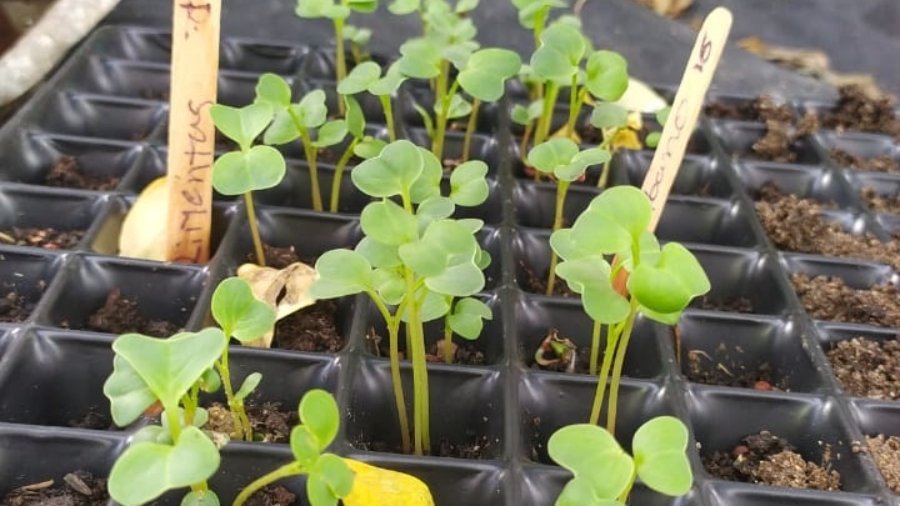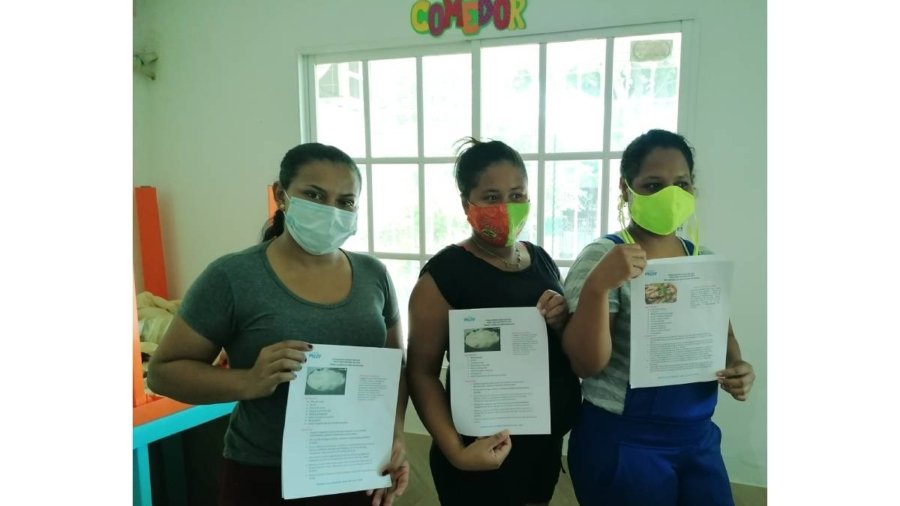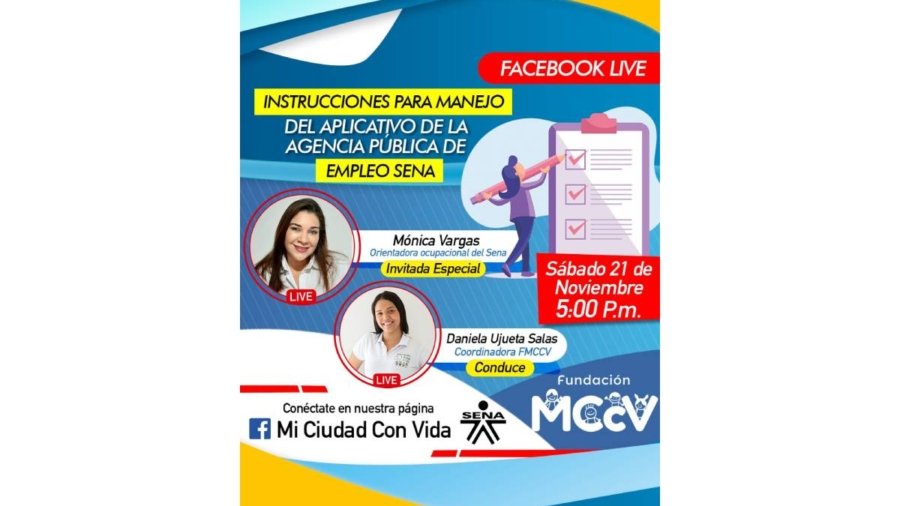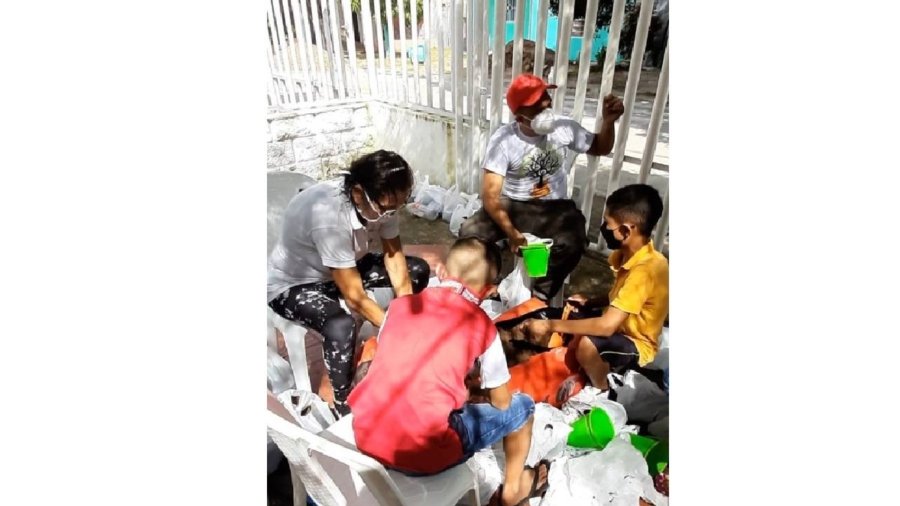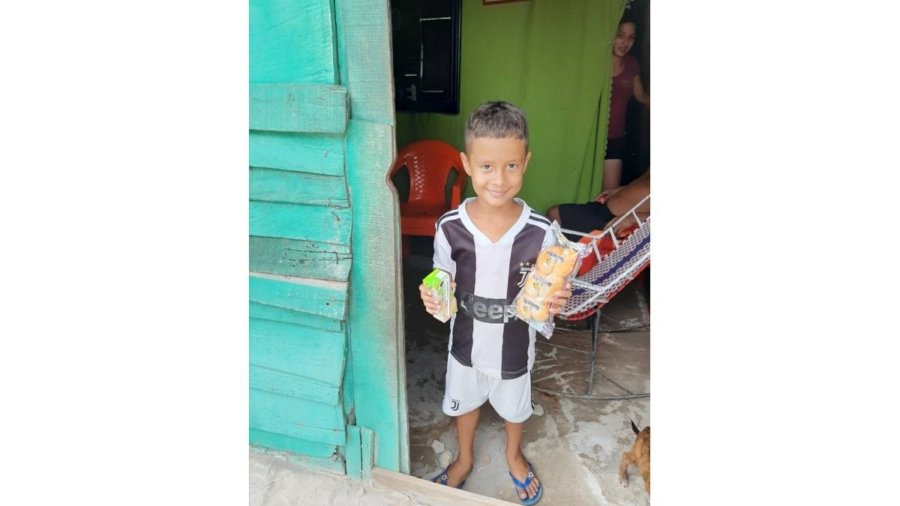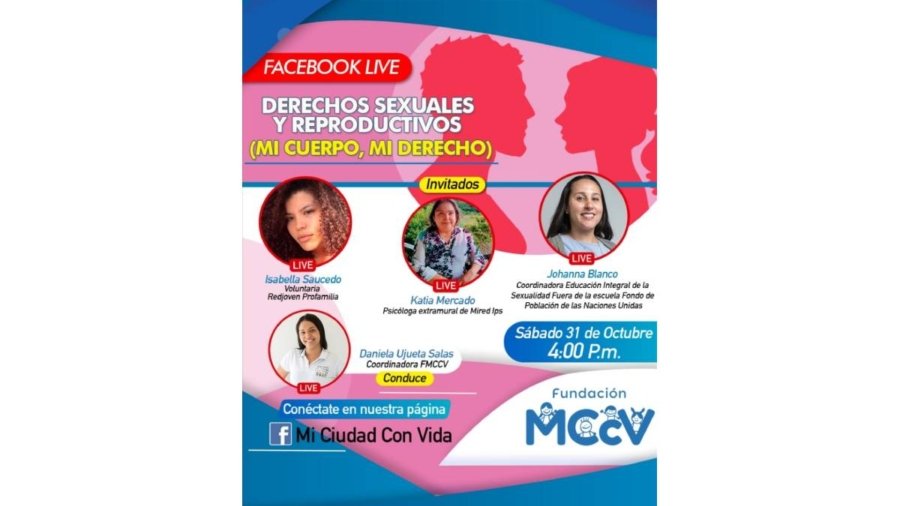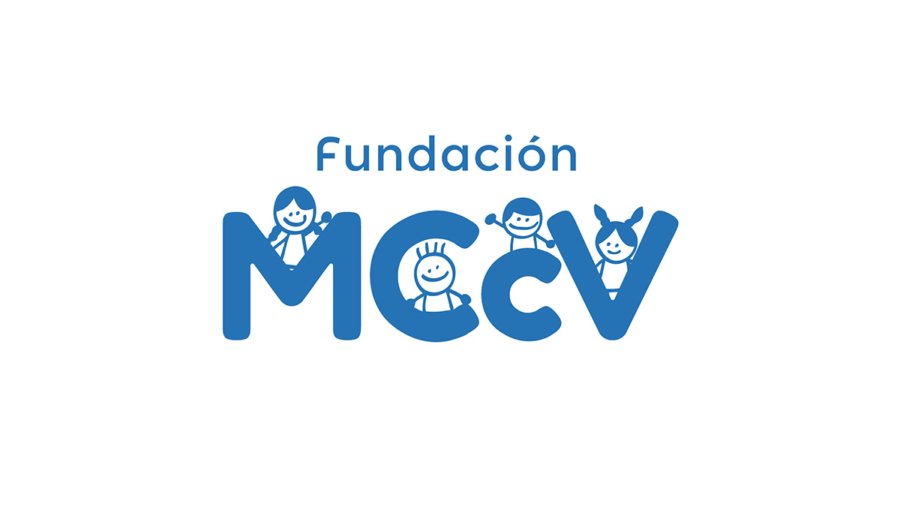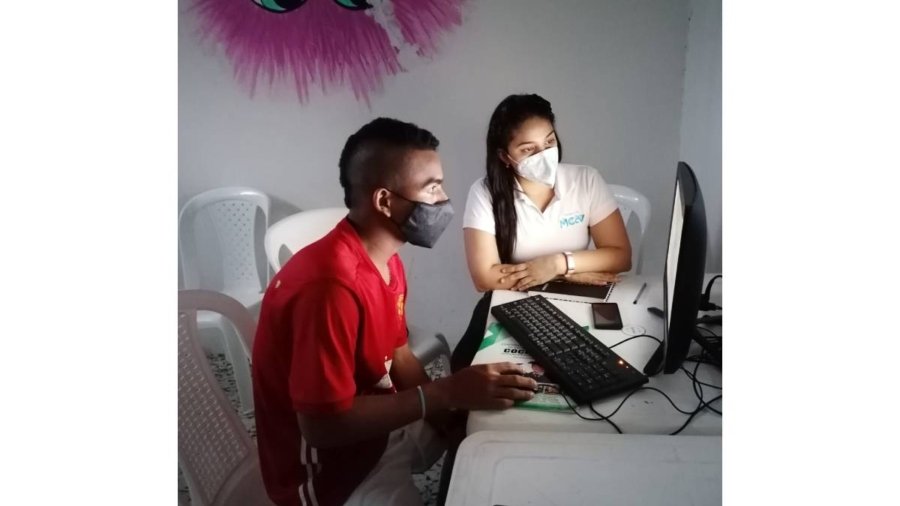Through the Cultivarte Project, which has been developing in the community of Lipaya and Soledad, the dream of producing a small amount of vegetables at home is being brought to reality in order to reduce the cost of the family food, increase the consumption of healthy foods and unite families in this purpose. Creating the culture of green production in the gardens and terraces of the beneficiary families has been a purpose that we aspire to be perpetuated over time for the direct benefits to our families.
Nutritional workshops at the Soledad site
| The school cafeteria is holding nutritional workshops twice a week, where families learn to prepare healthy recipes to prepare for children at home. |
Instructions for handling the application of the public employment agency SENA
| This week, Monica Vargas, the SENA Occupational Counsellor, accompanied us, who was sharing with the families and children of the higher education program, about the services that the public employment agency provides to the vulnerable population and all Colombians in general at the time of improve job skills or seek employment opportunities. |
Advancement of urban home gardens
| We delivered materials for the home garden project to 14 beneficiary families in the Lipaya neighbourhood. Among these materials were 9 species of vegetable seeds, 1 germinator, 1 bag of sturdy, 1 bundle of compost and two sandbags for each family, who with these materials began the preparation of the substrate and the sowing of the seeds. |
Delivery of snacks in Barranquilla and Soledad
| The Mi Ciudad Con Vida Foundation in partnership with New York bakery delivered 90 snacks to children’s groups in Barranquilla and Soledad. |
Prevention and responsible sexuality
| The psychosocial support program, in agreement with the Ministry of Health and Mired IPS, carries out a campaign to prevent sexually transmitted infections and early pregnancies. |
SELF-CONCEPT, BASIS FOR A HEALTHY SELF-ESTEEM
| Through various recreational activities, we addressed themes such as self-knowledge, self-concept and self-acceptance with the children and adolescents, as a strategy to strengthen the set of ideas, physical characteristics and beliefs that each of them has of themselves. Our children recognised their talents, abilities, and strengths that make them special, authentic, and unique. |
Sexual and reproductive rights (my body, my right)
| This week we were accompanied by professionals who are experts in sexuality issues, with the aim of guiding families and adolescents on myths and realities, social programs and health care routes, in order to promote responsible sexuality and reduce early pregnancies. Families actively participated by asking questions and sharing their experiences on the subject. |
Entrepreneurship underway
| With great energy and enthusiasm, the beneficiaries of the Mi Ciudad Con Vida Foundation started the entrepreneurship project, where the purpose is focused on strengthening them in business plans. Interest and great disposition were the predominant theme during the day. The members of the teaching team did their best to carry out their projects and make their ventures the best. Congratulations! |
Sena orientation and registration for beneficiaries of the 2021 Higher Education program
| From the psychosocial support program and the articulation and educational follow-up, orientations and registrations were made on technical and technological careers corresponding to the institutional offer of the Sena National Learning Service. |

